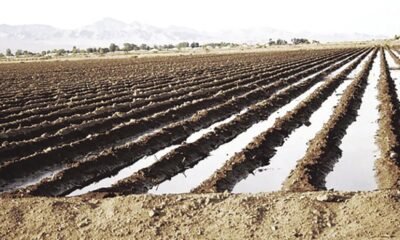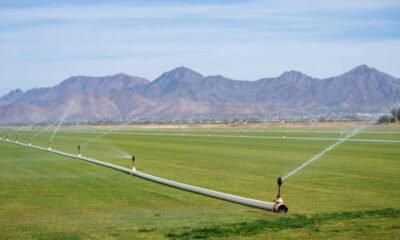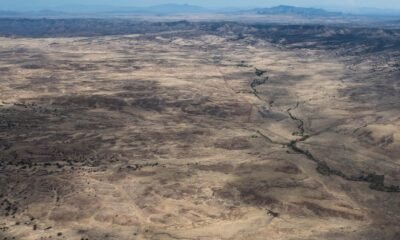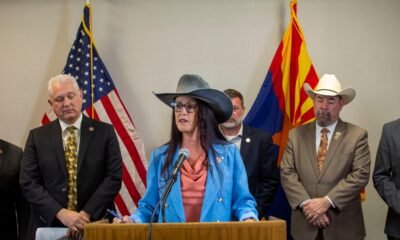Usa News
Surge in Grand Canyon Visitors Opt for Nearby Hotels as Water Pipeline Woes Persist

GRAND CANYON NATIONAL PARK, Ariz. — After a four-day trek across the Grand Canyon, hikers Sharon Ellison and Fred Jernigan discovered their planned hotel accommodations had been unexpectedly canceled due to a water supply crisis impacting the park. They arrived at the South Rim on Thursday, only to learn that no overnight lodging was available as the park faces significant water restrictions.
According to park officials, challenges with the Transcanyon Waterline, which supplies potable water to the South Rim and other facilities, are at the heart of the crisis. Built in the 1960s, this crucial pipeline has surpassed its intended lifespan and is currently nonoperational.
Effective Thursday, all overnight accommodations, including El Tovar Hotel and Bright Angel Lodge, ceased operations for guests. Jernigan expressed understanding of the situation, emphasizing the importance of preserving resources. “It’s not really a shock to us,” he noted.
North Carolina residents Jernigan and Ellison faced complications after not showering since Sunday. However, they remained adaptable. Ellison humorously remarked, “After coming up rim to rim, we can roll with the punches.”
Despite the temporary closing of lodgings, the park remains open for daytime visits, and camping options still exist. Barbara Badger from California chose to camp, marking the first anniversary of her husband’s passing at a location they cherished together. “We loved it. He loved it so much,” she recalled, emotional yet resolute in her decision to honor his memory.
Visitor statistics indicate the park welcomed 523,000 visitors in August and over 466,000 in September last year. The impact of the current situation has led to significant cancellations — about 970 reservations at Yavapai Lodge alone, as reported by spokesperson Glen White. All affected guests will receive refunds for their deposits.
Parks officials are focused on restoring water services and hope to reopen overnight accommodations soon, though repairs may prove complex. “To be exposed to the elements, that brings in a whole new level of complexity,” explained Darren Olson, chair of the American Society of Civil Engineers’ Committee on America’s Infrastructure. He pointed to the risks posed by extreme weather and potential rock slides in the canyon’s terrain.
Since 2010, the Grand Canyon has experienced numerous water pipeline breaks, but none reached the severity of the current Stage 4 water restrictions. The most recent failures occurred in a vulnerable area known as “the box,” which is notorious for its potential rock falls and intense heat.
These pipeline issues come on the heels of severe flash flooding in the park, which left several hikers trapped and resulted in at least one fatality, heightening concerns over park safety and infrastructure. The park remains committed to addressing its water delivery challenges while ensuring visitor safety and preserving its natural beauty.
Associated Press journalists Rio Yamat, Felicia Fonseca, and Walter Berry contributed to this report.


















